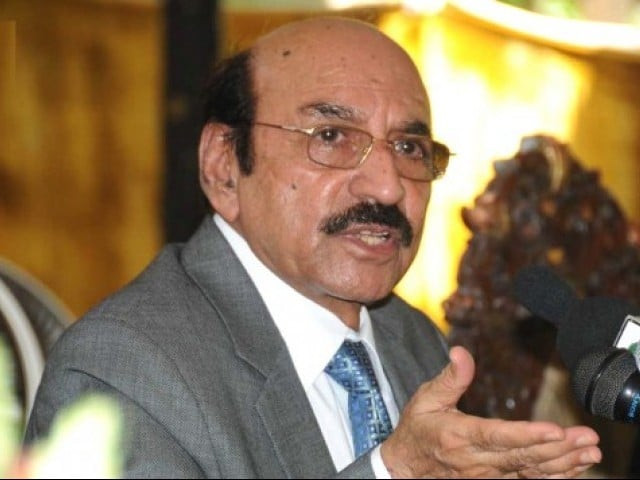Eighth NFC negotiations: Sindh to plead case for higher revenue share
Qaim Ali Shah claims the province needs the money to fight terrorism

Qaim Ali Shah claims the province needs the money to fight terrorism.
A day before the first round of negotiations, the Sindh government has decided that it will ask Islamabad for a greater share of the federal divisible tax revenue pool as part of the Eighth National Finance Commission Award. Sindh wants the share of federal revenues going to the provinces to increase from 57.5% to 60% for the next five years.
The decision on this demand was taken by senior officials from the Sindh government at the Chief Minister’s House in Karachi. The meeting was presided over by Chief Minister Qaim Ali Shah and was meant to prepare the province’s negotiating strategy ahead of the first meeting of the Eighth NFC, to be chaired by federal Finance Minister Ishaq Dar on Tuesday (today) in Islamabad.
Shah said that the justification for asking for a greater allocation for Sindh was that, like Khyber-Pakhtunkhwa, Sindh is also battling terrorism. The additional share demanded by Sindh would, therefore, be similar to the ad hoc extra allocation that Khyber-Pakhtunkhwa currently gets for having to deal with the effects of the war against the Taliban insurgency. Shah brought up the promise of Rs10 billion, which he said was committed by Islamabad to Sindh for fighting terrorism.

The National Finance Commission Award is an agreement between the federal and provincial governments on how to split tax revenues that are still mostly collected by the Federal Board of Revenue. It is an agreement that lasts for five years each, the Seventh and most recent of which was last agreed to in 2010 and expires at the end of the current fiscal year on June 30.
Shah claimed the provincial government was facing financial difficulties. “The NFC was the only instrumental sources to bring them out from such difficulties,” he said.
Sindh is the only province that routinely runs budget deficits. It is also the most vocal among the provincial governments for transferring more political autonomy to the provinces. And unlike the other smaller provinces, Sindh carries a lot more political sway on fiscal matters because more than 54% of federal revenues are collected in the province, largely due to the presence of the Karachi Port.
The Seventh NFC Award was the first time that the federal government agreed to give up the majority of its financial resources to the provinces, agreeing to disburse 57.5% of the divisible pool of tax revenues. It was passed in conjunction with the 18th Amendment to the Constitution, which substantially expanded the legislative and executive authority of the provincial governments, a devolution of power that the provinces are not only keen to preserve, but also expand through the Eighth NFC Award.
Hence, when confronted with rumours that the federal government may postpone the negotiations for this year and extend the arrangement of the Seventh NFC Award, the Sindh government reacted sharply. “The Sindh government will oppose this proposal if raised in the meetings,” said Shah. “Sindh wants the new NFC according to its schedule.”
The meeting was attended by Sindh Minister for Finance Syed Murad Ali Shah, Adviser for NFC award Saleem Mandviwala, Sindh Chief Secretary Muhammad Siddique Memon, Secretary to CM Sindh Alamdin Bullo, Finance Secretary Sohail Rajput and others.
Published in The Express Tribune, April 28th, 2015.



















COMMENTS
Comments are moderated and generally will be posted if they are on-topic and not abusive.
For more information, please see our Comments FAQ